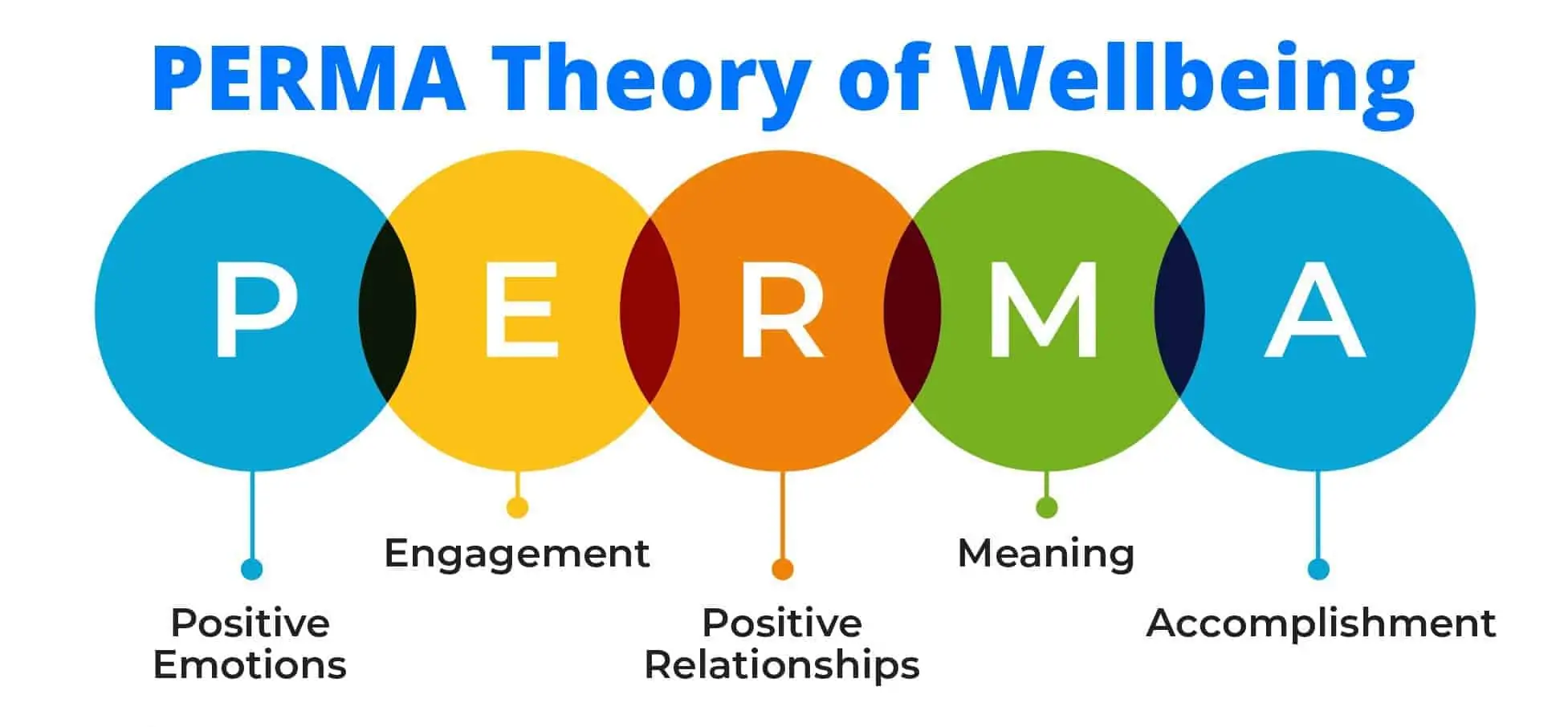Today's Friday • 5 mins read
— By Dr. Sandip Roy.
Positive psychology, popularly known as happiness science, studies how we can make our lives happier and more worthwhile.
Until the debut of positive psychology in 1998, traditional psychology mostly concerned researching and treating the illnesses and disorders of the human mind.
Its founders pushed for a shift in focus from treating mental health illnesses to enhancing the positive aspects of life and finding ways to boost mental well-being.
PERMA: 5 Key Principles of Positive Psychology
The five key principles of positive psychology are known by the acronym PERMA. They are the very essence of happiness science, what makes us happy and helps us thrive.
Developed by Martin Seligman and colleagues, the five key principles of positive psychology are:
- Positive Emotions
- Engagement
- Relationships
- Meaning and Purpose
- Accomplishment

Professor Seligman, the father of modern positive psychology, laid the foundation for how these five principles can help us create a life of greater joy and meaning.
1. Positive Emotions: First Principle of Positive Psychology
The Principle of Positive Emotions states that the more positive emotions we experience, the more fulfilling and meaningful our lives are.
Positive emotions are those feelings that give us joy, contentment, and satisfaction. They are a vital part of the human experience and play an important role in our overall well-being.
Positive emotions have been found to have many beneficial effects on our lives, including improved physical and mental health, greater life satisfaction, and increased creativity.
2. Engagement: Second Principle of Positive Psychology
The second principle of positive psychology is engagement, or a state of full involvement in activities that bring us pleasure and fulfillment.
Engagement can be defined as an “inner state of being” that allows a person to be connected to their surroundings, which can foster an appreciation for life and its experiences.
Engagement can also be seen as active participation in life’s activities and experiences.
It is also the process of discovering and appreciating the present moment. When engaged, we are more likely to have higher levels of performance, creativity, and lateral thinking (called “flow”).
Engagement is crucial for our optimal functioning and helps us forge meaningful connections, pursue meaningful goals, and savor life’s joys and pleasures.

3. Meaning and Purpose: Third Principle of Positive Psychology
The third principle of positive psychology is purpose and meaning. It relates to Maslow’s transcendence and actualization.
Finding meaning in life is about finding out what makes your life significant. Finding purpose in life means figuring out why you are here on earth.
When we know meaning and purpose, we get a better sense of direction and commitment to do things that serve our reason for being, even when things are difficult. We can make wiser decisions that lead to greater life satisfaction.
This principle applies to both individuals and organizations and can be used to improve the overall quality of life in both spheres.
4. Accomplishment: Fourth Principle of Positive Psychology
Accomplishment is an integral part of a life well-lived. Success and achievements are vital for bringing us a sense of quiet pride and serene satisfaction.
This fourth principle emphasizes the value of focusing on the progress and process of our actions to achieve lasting accomplishment and fulfillment.
It motivates us to keep striving for our goals and to make a lasting impact on the world. Achieving success is more about how you go on your journey and less about the final result.
It is about working with diligence and passion while remaining focused on the intricacies of the process.
With a better understanding of this, we may avoid getting bogged down when we fail to achieve, as well as not getting carried away by pride and hubris when we succeed.
5. Positive Relationships: Fifth Principle of Positive Psychology
The fifth principle of positive psychology is that of positive relationships.
Having meaningful and positive relationships is one of the essentials for a happy and fulfilling life.
Studies have shown that people with strong social relationships are healthier and live longer.
Relationships are integral to our lives, whether with family, friends, co-workers, or even strangers. The connections we form with others can have a profound impact on our overall well-being, and positive relationships are essential for increasing our life satisfaction.
Positive relationships bring a wealth of benefits to all parties involved. They provide a source of love and support that can help us to feel secure, accepted, and valued.
Good relationships lead to more meaningful and pleasant exchanges, giving us an outlet to talk and be sociable.
We can create a sense of belonging, both to the planet and to each other, if we have strong relationships with each other.
Through positive relationships, we can build trust, connection, and mutual understanding, and lead a healthy and successful life.

Final Words
Positive psychologists deal with the psychology of happiness and work to improve our overall well-being in life. They help us discover new ways to enhance our experiences, qualities, and relationships.
By learning to use these five principles, we can build more meaningful, rewarding, and healthy mindsets and outlooks, as well as live happier lives.
√ Also Read: 10 Greatest Happiness Hacks From Positive Psychology
√ Please spread the word if you found this helpful.
» You deserve happiness! Choosing therapy could be your best decision.
...
• Disclosure: Buying via our links earns us a small commission.
